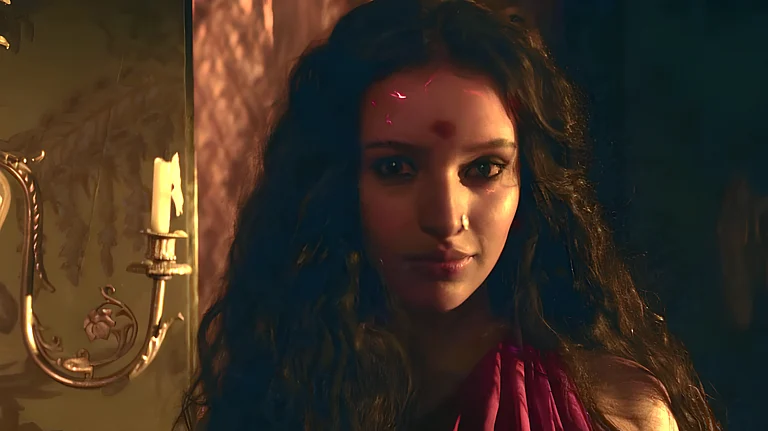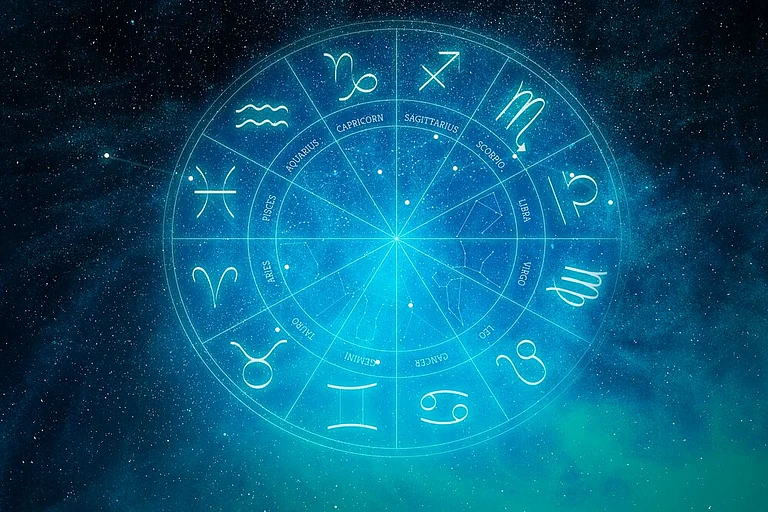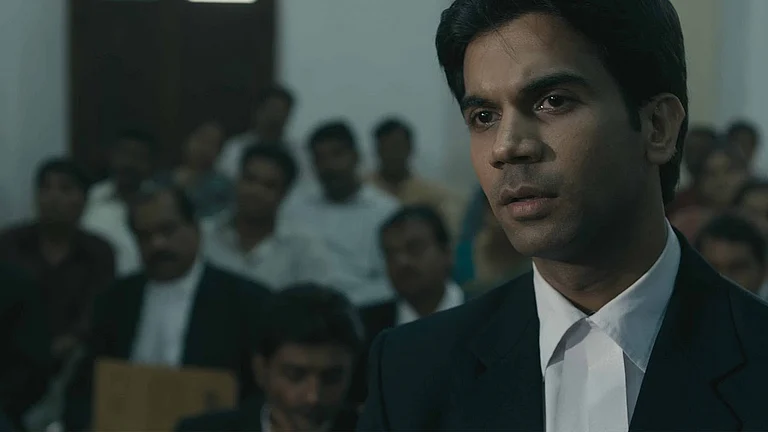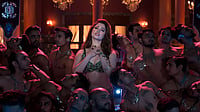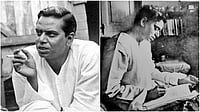
Actress Shabana Azmi turns 75 this year.
She's been a leading face of India's alternate cinema, especially in Shyam Benegal's films.
She has straddled alternate cinema with mainstream, alongside doing theatre and being politically active.
Shabana Azmi has been a face synonymous with the alternate cinema movement, giving life to characters otherwise not seen on screens before or since. Formidable, tender, oppressed, liberated, complex, layered—Azmi and the various women she has played have been far from simplistic. The joy of being Azmi’s audience is to have watched her embrace these complexities, fuel them with humanity at every single stage, and continue her journey on screen across age. At a time when commercial Hindi cinema marginalises actresses because of ageism and slots them according to their choice of roles, Azmi has consistently defied every norm and presented herself in memorable roles. And maybe that’s been the cornerstone of Shabana Azmi’s personal and political choices—unravelling conformity, and treading her own path and journey, on screen and in life.
One can always attribute the idea of free thought and liberation to act on that free thought, to having grown up in an egalitarian communist home surrounded by progressive artists and thinkers. Born to Kaifi Azmi and Shaukat Azmi, living in a CPI commune, having continued access to intellectuals like Faiz Ahmad Faiz, Josh Malihabadi, Firaq Gorakhpuri, Begum Akhtar, Sahir Ludhianvi, her normal would naturally have been the idea of a non-conformist, feminist, progressive idea of life. This idea reflects in her choices of films, the causes she lends her voice to, and her navigation of spaces—both physical and metaphorical. Straddling theatre with film, alternate with mainstream, intellectualism with entertainment, Azmi is impossible to slot, and therein lies her greatest mettle as an artist—marking everything she touches with her inimitable approach and politics, and yet staying so immaculately fluid that forms, ideas and politics come together seamlessly.

A journey that began with Shyam Benegal’s Ankur (1974), fresh out of Film and Television Institute of India, is still as rich and diverse as ever. What followed Ankur, was a long collaboration with films that shaped the landscape of alternate cinema—Nishant (1975), Junoon (1978), Mandi (1983) and Antarnaad (1991). Ankur is critical as one of those very few films that looks at caste up close and personal, while Nishant focuses on the idea of power and hierarchy within villages. While each of these films deserves a separate piece for itself, as does Azmi’s work in them, it is Mandi (1983) that unleashed her range. A glorious satire on politics, prostitution and power, Mandi explores the idea of agency, love, liberation and guilt in various narratives. Partnering again with Naseeruddin Shah, their craft together elevates every scene to performative excellence. Another exceptional example of their work together is Sai Paranjpye’s Sparsh (1980). The film unravels the depth of the reasons people forge relationships, and how that decides their fate. Azmi’s restrained portrayal of grief, the dignified take on what the idea of social work means to Kavita, why it matters, is one for the ages. Shah’s detailing of navigating a world not designed for someone with a physical disability and the difference between pity as a motivation versus love is a textbook of performance.
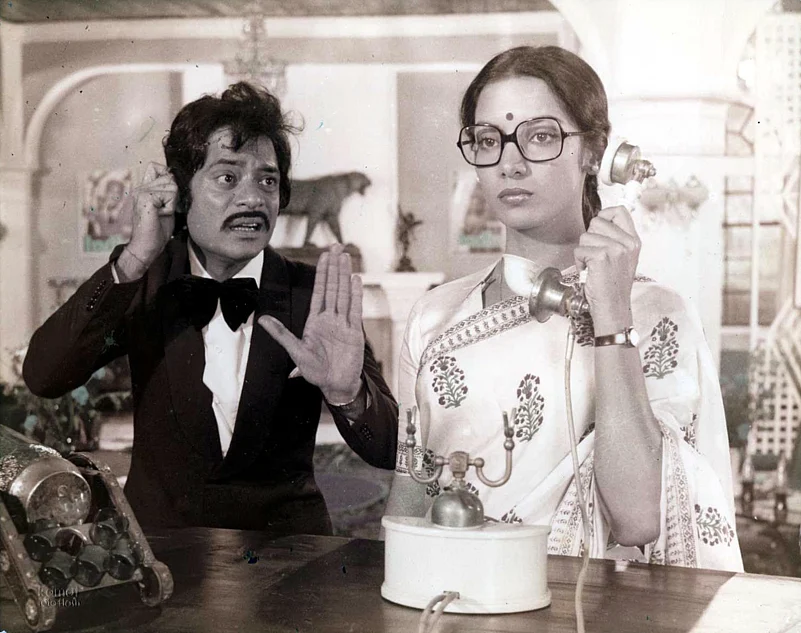
Reams have been written about Azmi’s work in alternate cinema. However, her straddling of the commercial with it is possibly unique to her, and at best to Rekha (who left celluloid much earlier). Shekhar Kapoor’s Masoom (1983) showcases a woman’s conflict between coming to terms with her husband’s short affair resulting in a son, and her own motherly instincts that wish to comfort the boy, now an orphan, desperately looking for his father. She is aware that it is her lack of acceptance that does not allow the father to acknowledge the boy as his son. This role had Azmi look at a woman and mother as a deeply human character, away from the holier-than-thou, perennially sacrificial, ‘devi’ avatar, core to the patriarchal portrayals of the Indian mother, that were the mainstream order of the day. ‘Ussey maloom hai ki tum uske kya ho, uske paas jaao DK’- says Indu (Shabana Azmi) in a particularly poignant scene when she reveals to DK (Naseeruddin Shah) that Rahul (Jugal Hansraj) has found out that DK is in fact his fathe, and hasn’t revealed his identity to him despite knowing his desperation to find his father. The restraint, heartbreak and anger that lace her voice are enough for an understanding of everything that she is going through, in that moment of agony as a hurt wife, a pained woman, and a heartbroken mother.

Similarly, Arth (1982) has her work through her own feelings of abandonment, ideas of respect, need and focus of life, and the complete idea of meaning. The scenes of Pooja (Shabana Azmi) breaking and begging for her home to be left intact, to not be abandoned are heart-wrenching. The moment when she forsakes her own respect for the need to be with Inder (Kulbhushan Kharbanda) brings to life the mettle of her craft. She brings to life what it means to be left, and the strength and clarity to refuse another partnership and truly understand what gives her peace and the idea of moving forward. Azmi’s range is enviable. From the mad, mad Amar Akbar Anthony (1977) to deeply sensitive films like Ek Din Achanak (1989), and countless more, she portrays a wide range of women across class, caste, age, disposition and arc.
Her journey doesn’t stop. And neither does her experimentation. Whether in Makdee (2002) as a delightful witch; or Neerja (2016), as a grieving yet proud mother—working through accepting her massive loss, yet, holding space for her daughter’s strength and sacrifice; or as a middle-aged woman giving love a second chance fighting off a tough past in Honeymoon Travels Pvt Ltd. (2007).
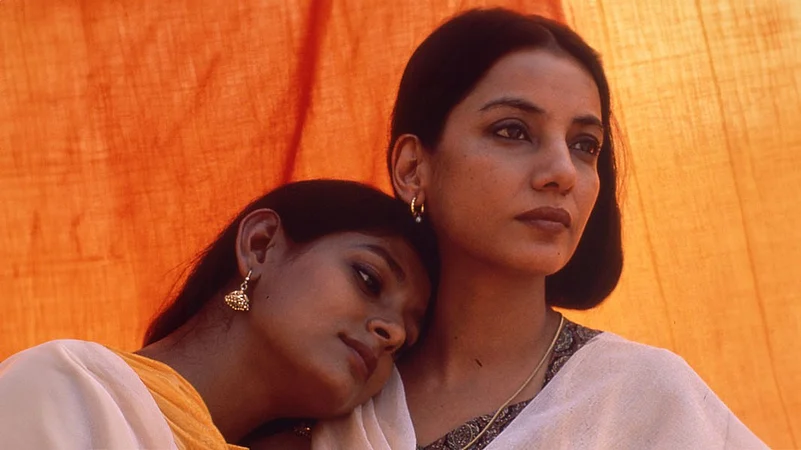
Fire (1996) and Sheer Qorma (2021- Short) are two crucial films in her lengthy list of performances. Both look at the theme of same sex relationships with different lenses, and different socio-political outlooks. In Fire, as Radha, Azmi portrays the frustrations and guilt thrown at women through patriarchy of not being able to bear children (for no ‘inadequacy’ of theirs), no space for their own sexual desires, and the idea of non-heterosexual sexuality with definitive vulnerability. As a woman suppressed and compromising with her fate, she finally realises that she can steal moments of pleasure and could have a way out as she sees Sita’s (Nandita Das) refusal to live in a bonafide trap of a life. Fire brought into mainstream critical conversations around female desire and sexuality, choice and freedom. For an actor of Azmi’s popularity and legacy to choose a film of such potential controversy (which it stirred) was a decision only she could’ve made, and aligns with her political choices. In Sheer Qorma, she beautifully plays the arc of a Muslim parent living in denial of her child’s non-binary sexuality, eventually accepting her and her love. Sensitive and real at each stage, silences do more of the talking than the dialogue.
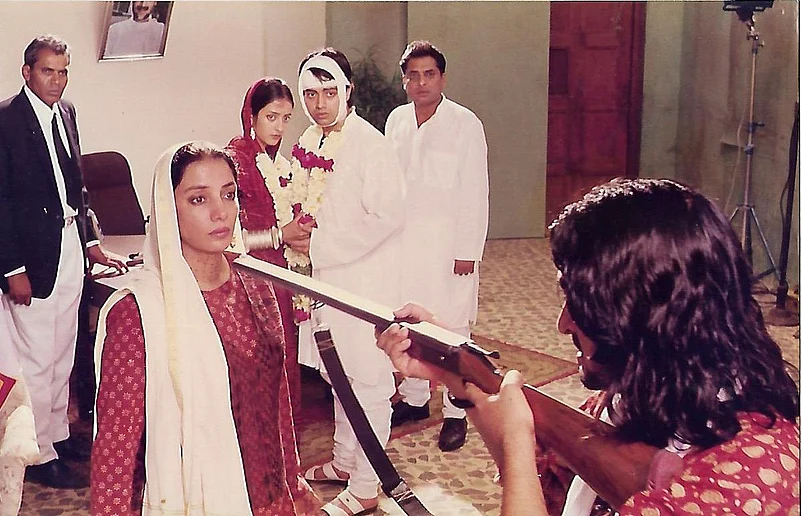
Hers was one of the few voices in mainstream hindi cinema that condemned the brutal murder of Safdar Hashmi in 1989 by Congress goons as he performed a street play on the then outskirts of Delhi. Her consistent work against communalism, speaking against hate until now (against the current oppressive regime), being consistently visible and present at spaces that champion egalitarian thought and progressive spirit are key to her persona and politics. In a country where the ruling government is choosing to demonise religious minority groups, she proudly performs at Jashn-e-Rekhta, repeating over and over with Javed Akhtar that Urdu is India’s language and not the language of Muslims. She wears dissent as a badge of honour, fearlessly speaking her mind everywhere on every topic. What makes Azmi truly progressive is her ability to look back and accept what she may have been incorrect about in the past. Her acknowledgement of having said ‘uncharitable things’ about Smita Patil is one such incident.

She has been a feminist icon for many. And even today as we watch her life through social media—her strong sisterhood with Tanishhtha Chatterji, Divya Dutta, Urmila Matondkar, Shahana Goswami, Sandhya Mridul, Dia Mirza, Richa Chadha and many more is testimony to the fact that women hold women up. The relationship she shares with Honey Irani, acknowledging the latter’s extreme grace, indicates the power, politics and security of both women. Her partnership with Javed Akhtar is that of equals, and of friends—a camaraderie that is visible through screens and on stage when they perform the letters between her parents. It shows her lived politics through her personal life.
Shabana Azmi is a rare artist. Her dignity shines through work and portrayals, and yet she disappears into her characters seamlessly without a trace. Uniquely straddling worlds, and possibly the only actor to have been performing consummately, Azmi is a woman for the ages, forever.







